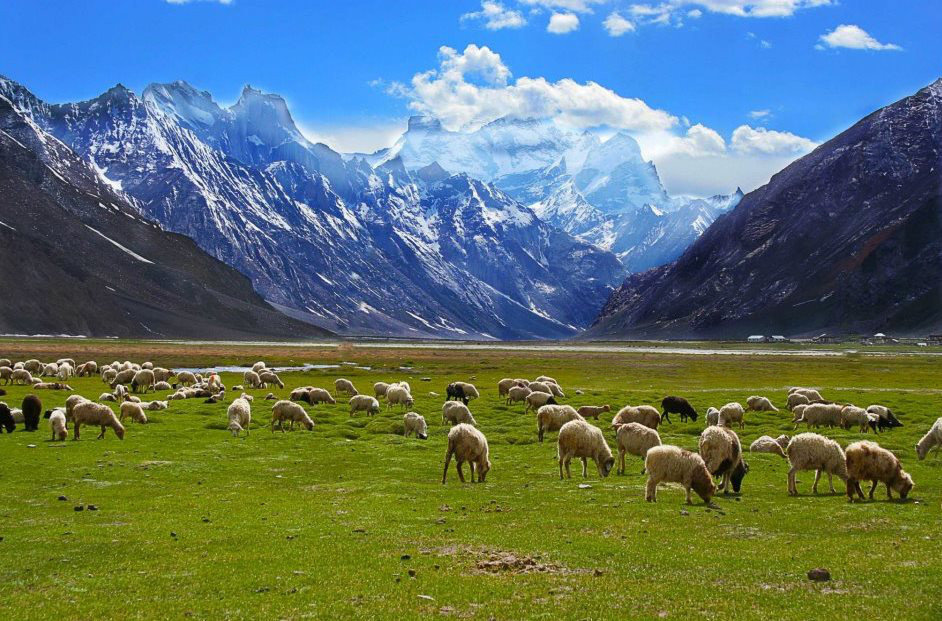SRINAGAR: Thousands of people in the remote region of Ladakh have been protesting for over two weeks in freezing temperatures, demanding constitutional provisions from the Indian government to protect their territory’s fragile ecology and to have autonomy over land and agriculture decisions.
Nestled between India, Pakistan and China, Ladakh has faced territorial disputes and suffered the effects of climate change. Shifting weather patterns in the sparsely populated villages altered people’s lives through floods, landslides and droughts.
Top climate activist Sonam Wangchuk is taking part in the demonstrations in the town of Leh. He has been on a fast, since the protests started on March 6, in the open in sub-zero temperatures and surviving only on salt and water.
Wangchuk, also an engineer working on solutions for sustainability at his Himalayan Institute of Alternative Ladakh, has called his protest a“climate fast.”
“We’re already facing climate disaster and these glaciers and mountains will be destroyed if there is not a check on unbridled industrial development and military maneuvers” in the region, Wangchuk told The Associated Press Sunday.

A photo of Rangdum village in Suru Valley. Ladakh nomads complain of losing prime pastureland to huge Indian industrial plans and Chinese encroachment. (Wikimedia Commons: Narender9)
Ladakh’s thousands of glaciers, which helped dub the rugged region one of the “water towers of the world,” are receding at an alarming rate, threatening the water supply of millions of people. The melting has been exacerbated by an increase in local pollution that has worsened due to the region’s militarization, further intensified by the deadly military standoff between India and China since 2020.
He also said Ladakh critically needs ecological protection because “it’s not just a local disaster in (the) making but an international one as these mountains are part of Greater Himalayas intricately linked to over 2 billion people and multiple countries.”
Wangchuk said the Ladakh nomads were also losing prime pastureland to huge Indian industrial plans and Chinese encroachment. The region’s shepherds complain that Chinese soldiers have captured multiple pasturelands and restricted them from grazing their herds.
The shepherds and Wangchuk are planning to march to the Chinese border later this month to underscore what they say is Beijing’s land grab attempts in Ladakh to gain territory.
In August 2019, Ladakh was split from Indian-controlled Kashmir after New Delhi stripped the disputed region of its statehood and semi-autonomy.














